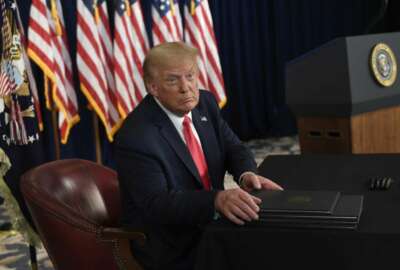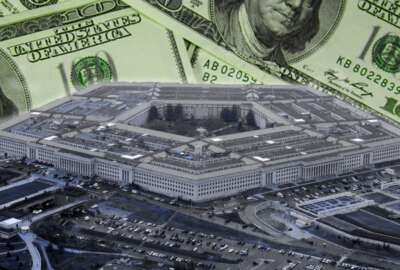
USPS won’t implement payroll tax deferral after reviewing impact on employees
After reviewing the policy's impact on the organization and workforce, the U.S. Postal Service has decided it will not implement the president's payroll tax...
The U.S. Postal Service will not implement the president’s payroll tax deferral, which went into effect for much of the military and civilian federal workforce last week.
“USPS has reviewed guidance issued by the IRS and the Office of Management and Budget addressing this issue,” the agency said Tuesday in an announcement to employees. “After thoroughly considering the impact on both employees and the organization, the Postal Service has elected not to implement the optional deferral.”
USPS handles payroll for its own employees; it doesn’t use one of four major federal providers.
The major federal payroll providers began deferring Social Security taxes from employees’ and servicemembers’ paychecks last week. Employees and military members whose basic, taxable income is $4,000 or less during a biweekly pay period are eligible for the deferral.
The deferral will continue through the end of the year, meaning employees and military members will see slightly larger paychecks for the rest of 2020.
Starting next January, federal employees and servicemembers will have to pay deferred taxes back, likely in installments through April. Employees’ paychecks will be smaller than usual during the first four months of the 2021, which USPS noted in its announcement to the workforce.
In guidance issued earlier this month, the Trump administration required executive branch agencies to implement the president’s payroll tax deferral “to the maximum extent possible.” Payroll providers and agencies have told employees and servicemembers they have no opportunity to opt out of the deferral.
USPS isn’t the only agency that had the choice of opting in or out of the president’s payroll tax deferral policy.
Judicial branch agencies can also decide whether or not to implement the tax deferral, the Interior Business Center, which processes payroll for some of those organizations, said earlier this month.
Unions that represent civilian federal employees have pushed the administration to provide more information and an opt-out option for the workforce, but their requests have largely gone unanswered.
The Defense Finance and Accounting Service (DFAS), which handles payroll for much of the military, Defense Department, Department of Veterans Affairs and others, has perhaps provided the most information to employees.
In recently updated frequently-asked questions for civilian employees, DFAS has clarified a few points. DFAS, for example, stated employees and servicemembers cannot increase their federal tax withholding in 2020 to avoid paying the amount of deferred Social Security taxes in 2021.
It’s still unclear how the payroll tax deferral will impact employee and servicemember W-2s for 2020 and 2021, DFAS said.
And it’s unclear how exactly employees who retire or separate from federal service before the new year will be expected to pay back the deferred taxes from 2020, though they will be responsible for the sum.
Copyright © 2025 Federal News Network. All rights reserved. This website is not intended for users located within the European Economic Area.
Nicole Ogrysko is a reporter for Federal News Network focusing on the federal workforce and federal pay and benefits.
Follow @nogryskoWFED
Related Stories






